 The new memoir titled “Worthy Fights” by former Secretary of Defense and former CIA Director Leon Panetta is causing a stir. In the book, Panetta firmly lays the responsibility for the current mess in Iraq at Obama’s doorstep:
The new memoir titled “Worthy Fights” by former Secretary of Defense and former CIA Director Leon Panetta is causing a stir. In the book, Panetta firmly lays the responsibility for the current mess in Iraq at Obama’s doorstep:
“My fear, as I voiced to the President and others,” Panetta writes, “was that if the country split apart or slid back into the violence that we’d seen in the years immediately following the U.S. invasion, it could become a new haven for terrorists to plot attacks against the U.S.” He adds that his stance “reflected not just my views but also those of the military commanders in the region and the Joint Chiefs.”
Then, particularly damaging as the nation struggles with the Islamic State and a destabilized region, Panetta suggests Obama’s team put political promises before good foreign policy.
“But the President’s team at the White House pushed back, ” he recalls, “and the differences occasionally became heated. [Undersecretary of Defense Michele] Flournoy argued our case, and those on our side viewed the White House as so eager to rid itself of Iraq that it was willing to withdraw rather than lock in arrangements that would preserve our influence and interests.”
The White House, Panetta writes, “coordinated the negotiations but never led them. . . but without the President’s active advocacy, al-Maliki was allowed to slip away.”
While it is always nice to see a come-to-Jesus moment, no matter how late it occurs, there is little in the memoir that hasn’t been documented. Panetta’s main contribution is affixing his name to the bill of indictment. Last month, I detailed the chronology of how we allowed ISIS to develop in Obama blames others for abandoning Iraq:
Obama wanted out of Iraq from the time he entered the US Senate. He authored a bill that required a US withdrawal, ran on a US withdrawal, and when McCain accused him of going wobbly on that commitment he pushed back.
When the replacement for the Bush-negotiated SOFA took place, Obama could not decide on what level of troop presence he wanted. This placed Iraqi politicians in the position of having to sell the idea without know what they were selling.
Obama insisted upon a parliamentary vote of immunity for US troops. This placed members of parliament in the uncomfortable position of having to support two politically charged issues: US troop presence and immunity of US troops from Iraqi courts. Maliki, in a singular act of political courage, offered immunity via executive order. This is the same arrangement US military forces in Iraq today are operating under. Obama insisted on a parliamentary vote. And, once he’d insisted on the parliamentary vote, he refused to work to get the votes needed to pass it.
In short, Obama used the parliamentary vote as an escape hatch. He wanted out of Iraq and by setting a nearly impossible condition on future US military presence he made withdrawal inevitable.
The memoir, particularly the Iraq story needs to be critically viewed in the context of a long-time Clinton loyalist trying to inoculate Hillary from the mess in Iraq, the mess in Syria, the mess in Libya, etc., etc. In other words, he’s laying all the blame on Obama, including blame for those decisions which are the responsibility of Hillary Clinton. Read Panetta’s account and then the view expressed in a Politico interview with former Iraq ambassador Christopher Hill:
Finally, at the end of the long day there was a meeting with the U.S. Embassy staff in the large atrium of the half-billion-dollar embassy. Secretary Clinton, seeming to make eye contact with every person in the room, spoke eloquently and passionately, and with a sincerity that brought tears to some eyes. She said how important Iraq was to her, a top-tier issue, and how much she valued the staff at this embassy. She kindly introduced me as the ambassador she would leave behind, and said she would look forward to working with this embassy in the years ahead.
…
Three months later, Vice President Joe Biden took the lead on Iraq policy and she never returned.
That alone should scare the bejeezus out of you and explain most of what went wrong.
Soon after I arrived in Iraq, I was asked to produce a weekly memo for the president to update him on what was going on. This request turned into a month-long tug of war between the National Security Council staff and the State Department, because if I was to write a regular memo, surely it should be addressed to my direct boss, Secretary Clinton, first. Finally, in a decision worthy of King Solomon, it was decided that the memo would go to both the president and the secretary, but it would first make its way to the State Department, addressed “Madam Secretary,” so that the secretary could read and reflect on it, then forward it on to the president with her own cover note.
Yet despite the ferocious fight the State Department had put up to make sure these memos did not go directly to the White House, in 15 months of writing them, I never received a single comment on them from anyone in the State Department. President Obama was the only person I ever heard from.
Whether or not you agree with how we got into Iraq, the fact remains that we were engaged in combat operations there over the span of a decade and we were given a choice: capitalize on the gains we’ve made or abandon everything we have accomplished. Those gains were not insubstantial. Here is long time New York Times Iraq correspondent and Iraq war critic Dexter Filkins on Hugh Hewitt’s show:
HH: And on that point, Dexter Filkins, you’re a very wide open critic of the Bush war, the never ending war, your first book. But buried in this article, not buried but in the middle of it, is a conversation with Mohammed Ghafar, a 28 year old soldier who said the army never functioned as well as he had hoped, and it grew much worse after 2011. He had respected the professionalism of the Americans, the training they offered, but, “Everything changed after the Americans left. The commanders steal everything, they sell it in the local market. It is true the absentee rate soared, the rations went bad.” In other words, America leaving in 2011 may have been the worst strategic decision of many bad strategic decisions over the last ten years.
DF: It’s hard to conclude otherwise, you know, because that little, that quote from that deserter that I talked to in Kirkuk, I mean, you can almost say the same thing for all of Iraq. We left, the United States left in 2011. We went to zero, and we left. I mean, we packed up and left. So when you drive around Baghdad now, there is not a trace that the United States was ever there, and I mean apart from the American weapons, but in terms of like American presence and projects and guidance, gone. And I think that we spent almost a decade there. We paid with a lot of lives and a lot of blood, and building, essentially, rebuilding the Iraqi state that we destroyed. And I don’t think it was ready. I mean, it just wasn’t ready to function on its own. And it couldn’t function without us. And actually, Ambassador Crocker, who was on your show, had a really good description of it. He said you know, we build ourselves into the hard drive of the place, and so we, the United States, were the honest broker. We were the only people that could sort of bring all the Iraqi factions together, and then we left. You know, and so the thing doesn’t work without us. And you can see that in Iraq at a micro level, like when I talked to that deserter, who said as soon as the Americans left, the commanders started stealing all the money and everybody left, and everything fell apart. Or you can see it at the macro level. I mean, that’s what’s happened to the Iraqi state.
Obama and Clinton decided to play to the lowest instincts of their political base which is driven only by the basest instincts to begin with. They allowed this situation to develop and they should have it tattooed to their foreheads as an indelible mark of their political legacy.
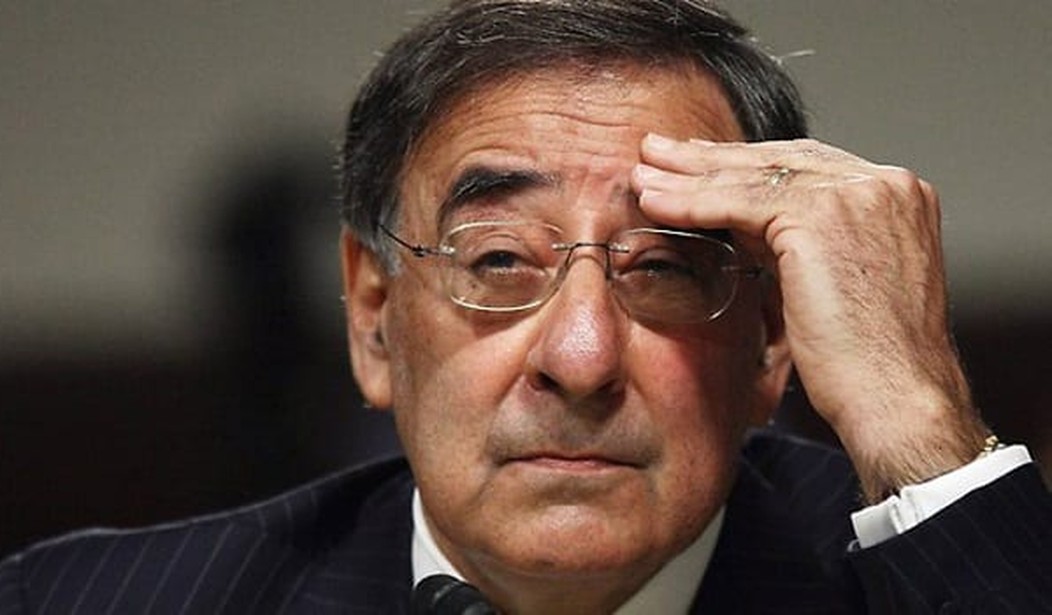


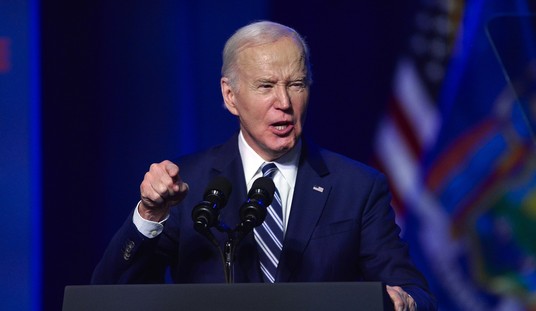
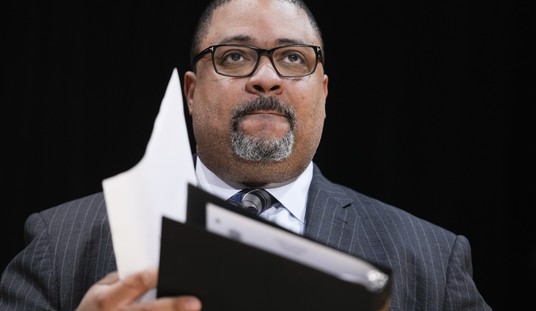

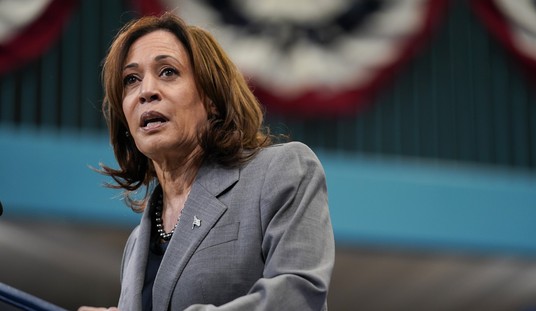


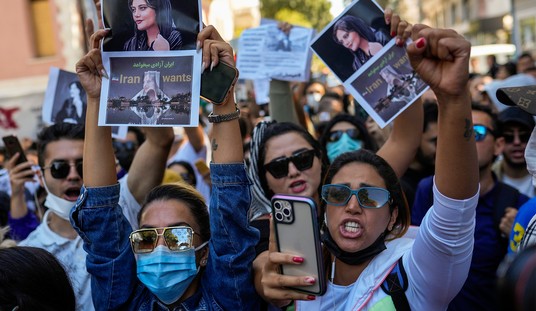




Join the conversation as a VIP Member